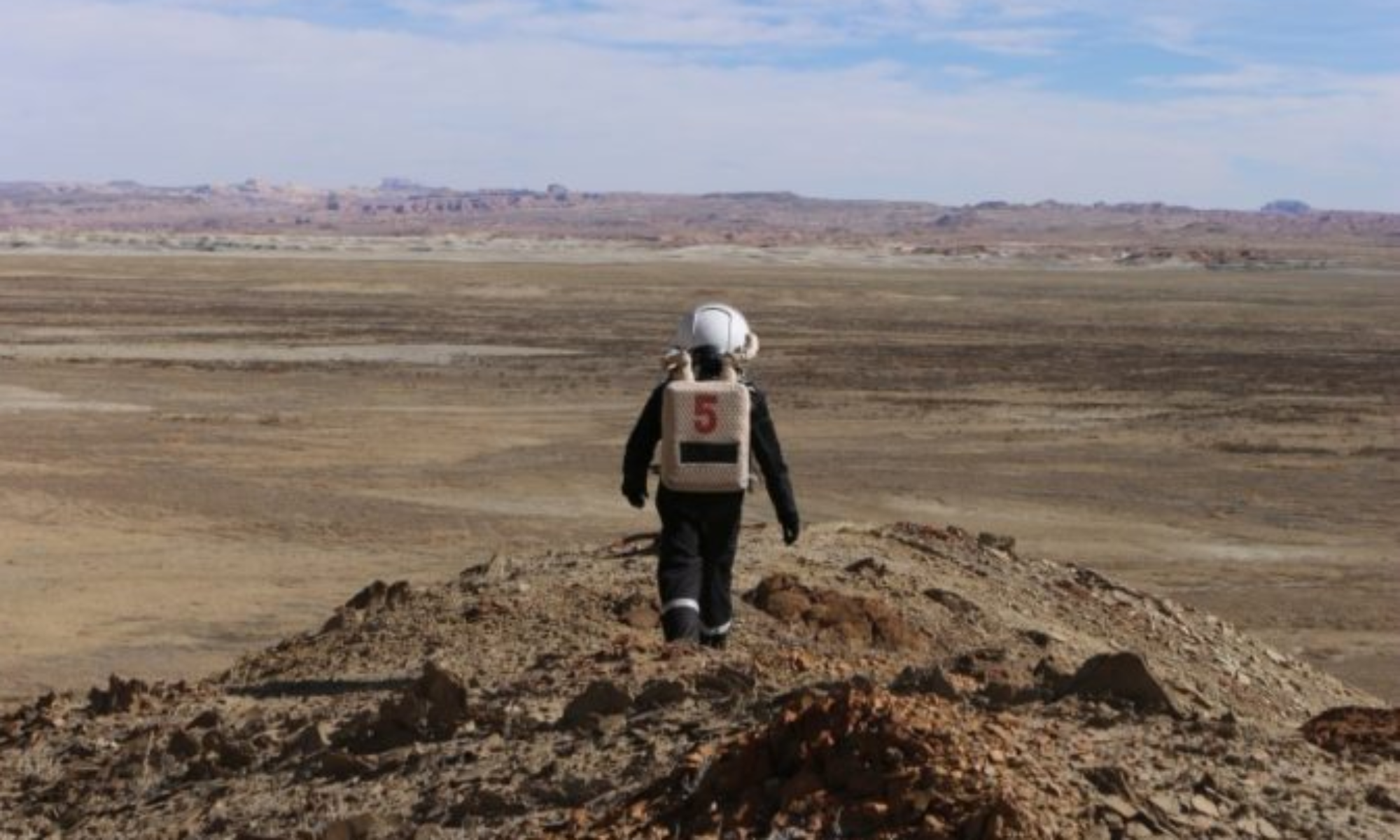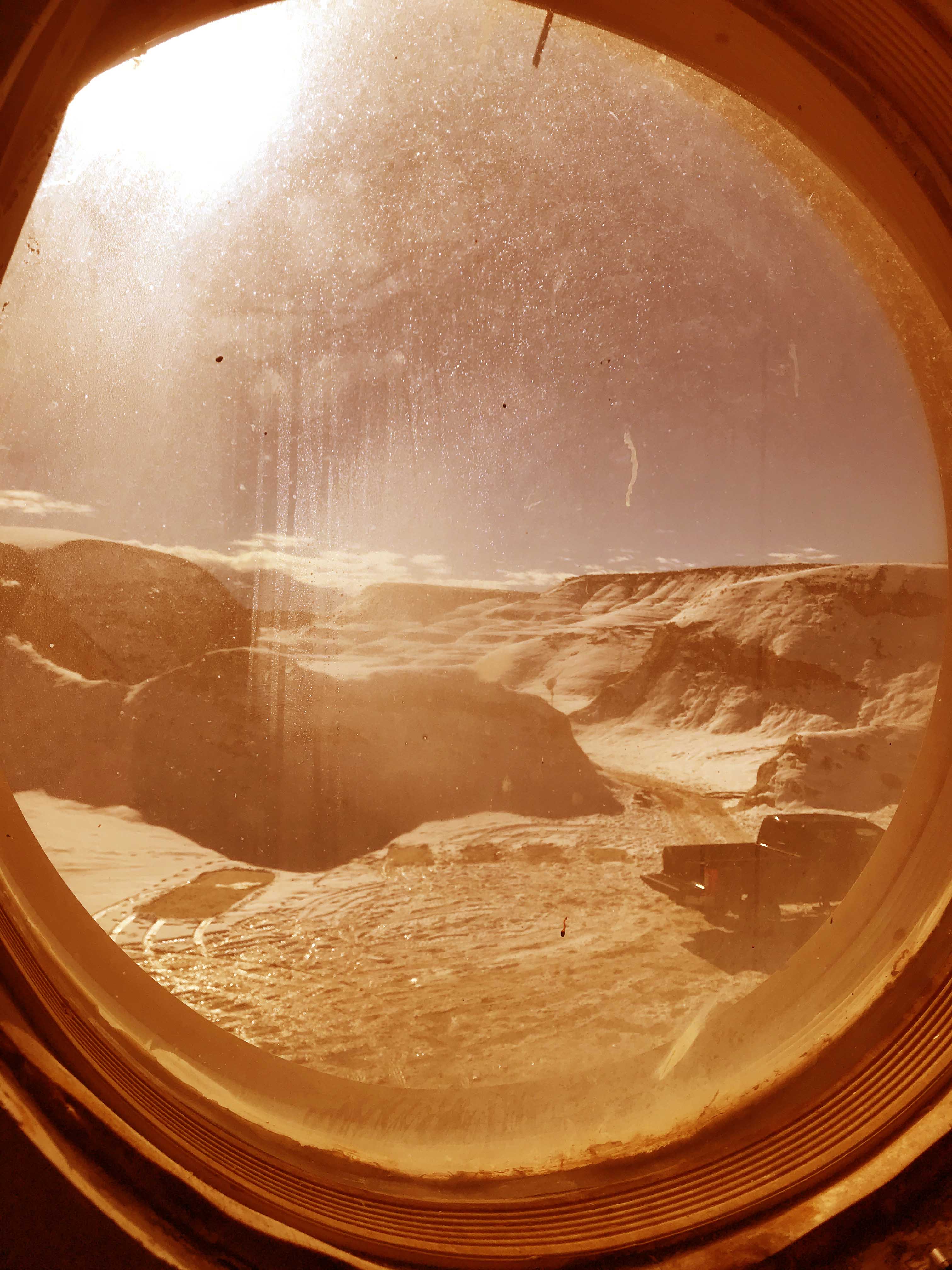Sol: 11
Acting Journalist: Lindsay Rutter
12-13-2018
Mesas surround us with their red striations. Iron oxide that pumped
through the hearts of long-deceased stars. It is only skin-deep, our
crew geologist says. Dig a few inches and the soil is an anemic grey.
We wake up one morning to the aftermath of heavy snowfall. Our world
radiates a blinding white from all directions and our loud orange
spacesuits only add to the dizzying effect.
Nighttime at last. Our eyes can heal. A jet-black globe encircles us.
We were swallowed by a giant galactic beast. Shy stars I have never
seen before come out from hiding. Light does not litter this isolated
land. We can perceive stars with apparent magnitudes reaching the
limits of human visual perception from this area, our crew astronomer
says. How much deeper into the night sky can other creatures see from
this planet? Their lenses hard at work focusing the light like tiny
organic telescopes.
A spacesuit greets me with a dramatic new makeover as I enter the
habitat one afternoon. A crew member is painting her spacesuit head to
toe with splashes of color. Extravehicular activities are hard work,
she says. The colors represent the energy flowing through different
parts of her body. These senses can be transcribed into color. I ask
her if she has heard of synesthesia.
Entering the GreenHab and I can almost smell the color green. The
plants absorb red and blue and reflect a green perfume. Colors feed
the plants and the plants feed us.
Our crew engineer troubleshoots the power control board, our lifeline
on this harsh terrain. Five lights blink furiously. Red. Green. Red.
Red. Green. He asks me to confirm which color is which. Not everyone
perceives these colors the same.
The Martian flag hangs proudly in the airlock. An unofficial tricolor
design with red, green, and blue stripes. For many, these colors
represents the terraformation of Mars, a topic that remains a matter
of debate. I have experienced many new things during this mission and
have grown from a full spectrum of viewpoints of my crew mates. Mars
means different things to different people, from the red dot to the
blue dot.
Lindsay Rutter



You must be logged in to post a comment.